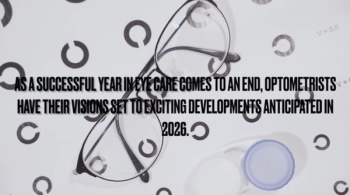
Antidepressant use, age, health linked to abnormal binocular vision
According to research from the University of Waterloo in Canada, abnormal binocular vision dramatically increases with age, but is correlated with a patient’s general health and antidepressant use.
Waterloo, Canada-According to
The study looked at records from 500 patients, ages 60 and over, who received treatment at the university’s on-campus clinic. Data included age, general and ocular history and symptoms, antidepressant use, smoking habits, refraction, visual acuity, binocular vision and eye movement status for the most recent full oculo-visual assessment, and an assessment from 10 years prior.
"An association does not establish that one causes the other, but rather that they co-exist," says Susan Leat, BSc, PhD, FAAO, PCOptom, who led the study. "It is possible that the effects of poor vision mean that people are more likely to take anti-depressants or make less healthy lifestyle choices."
Next:
Newsletter
Want more insights like this? Subscribe to Optometry Times and get clinical pearls and practice tips delivered straight to your inbox.













































.png)


